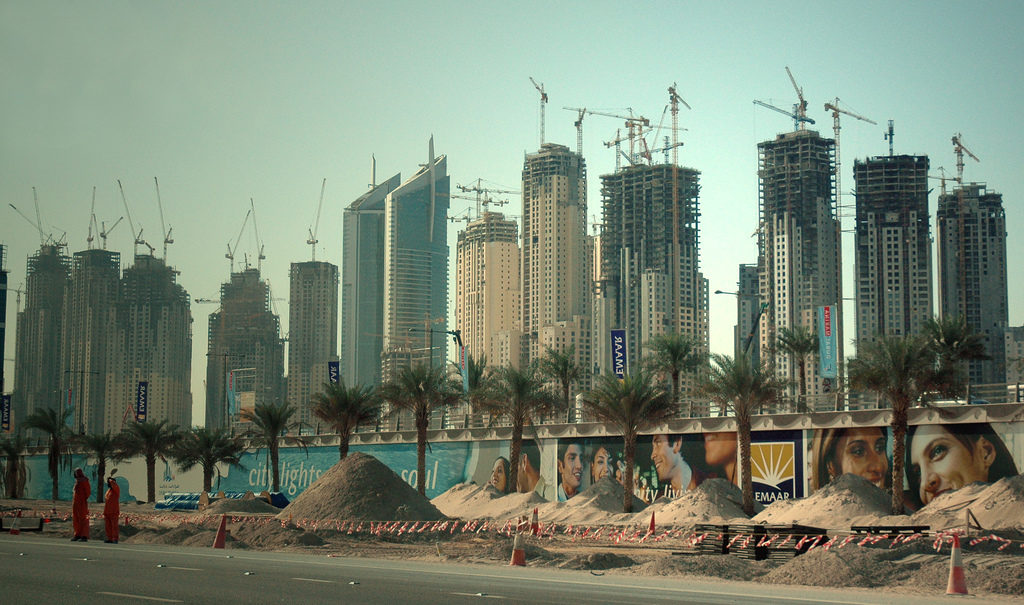UAE employers to continue to recruit from Asia in 2019
IT and health care professionals will continue to be recruited from Asia
Photo: Jack Brewer/ MPI

Employers in the United Arab Emirates (UAE) will still be looking to Asia to staff their offices and factories in 2019. This trend will continue for the rest of the year in spite of the ebb in migration. The forecast is made by GulfTalent, based on a study it conducted. The study found that an increasing share of the new vacancies is being filled by candidates of Asian nationality. This was reported by the news portal Arabian Business.
GulfTalent is an online recruitment firm. It studied a survey of 300 UAE hiring managers and also conducted an analysis of talent searches conducted by more than 1000 UAE-based employers on its database of professionals. It found that UAE employers are planning a net expansion in headcount during 2019, with an increasing share of the new jobs being filled by Asian professionals.
Last year a study by the Kerala-based Centre for Development Studies had found that emigration from the state – which accounted for the largest expatriate community from India in the Gulf Cooperation Council (GCC) – had been falling. It had further found that not only was there less migration than earlier, but a number of migrants had been returning, whose numbers had been increasing year on year. The CDS study however, found that emigration of high skilled labour would continue.
This is corroborated by the GulfTalent’s study which projects a net 9 percent growth in UAE employment this year, with 36 percent of all surveyed companies planning to increase headcount against 27 percent who expect to reduce staff and 37 percent who foresee no change. The recruitment firm’s survey found that IT and healthcare were the fastest growing sectors. Both witnessed a 30 percent year-on-year growth in the volume of hiring while the construction sector remains under pressure, with overall hiring limited and some companies downsizing.
Healthcare’s growth is driven by legislation mandating provision of health insurance by employers while IT hiring is driven by increased digitization of services and the continuing expansion of the country’s startup ecosystem. Both sectors required professionals with higher levels of education than those in the construction sector for instance, which recruits less skilled workers.
Lower salaries
Expectations of lower salaries has emerged as the biggest factor in their favor, as compared to nationals from Arab or Western countries. The study found that an increasing share of the new vacancies are being filled by candidates of Asian nationality, with employers citing lower salary expectations of these candidates as the primary reason.
Arabian Business reported that over the past one year, Asian nationals saw a 12 percent increase in their share of approaches by UAE employers hiring on GulfTalent, while Arab and Western expats saw declines of 8 percent and 10 percent respectively.
Based on GulfTalent’s data, among expatriate professionals working in the UAE and holding the same job title, salaries paid to Asian nationals are, on average, 20 percent lower than that paid to Arab nationals and 40 percent lower than that of Western nationals.
The portal cited a UAE-based HR manager interviewed by GulfTalent, as saying : “Our hiring preference has been towards Asian expats, as it gives us a balance between the right skill set and a salary expectation that fits our budget.”
According to GulfTalent, Indian and Pakistani professionals have seen the biggest surge in interest from employers over the past year, followed by those from the Philippines and Sri Lanka.
The portal cited GulfTalent as saying that at the same time, American, Canadian and Australian nationals all saw declines in hiring by UAE employers. In their effort to reduce costs, employers surveyed also reported reaching out to less experienced candidates.
According to GulfTalent’s findings, the construction sector remains under pressure, with overall hiring limited and some companies downsizing.
Retail is another sector that is facing challenging conditions, due to lower consumer spending resulting from market conditions as well as the jump in prices following the introduction of VAT last year, GulfTalent noted.
Written by IAR with inputs from Arabian Business